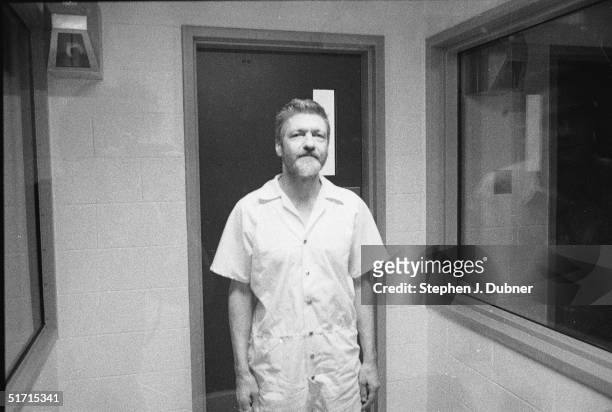Kaczynski was arrested in 1996 and is currently serving life imprisonment without the possibility of parole.
Kaczynski was born on May 22, 1942, in Chicago, Illinois. Ted Kaczynski was a child prodigy who began studying advanced mathematics at the age of 6.
He attended Harvard University at the age of 16 and earned his PhD in mathematics from the University of Michigan at the age of 25.
Despite his intelligence, Kaczynski struggled with social interactions and eventually resigned from his teaching position at the University of California, Berkeley in 1969.
Ted Kaczynski retreated to a remote cabin in Montana, where he spent the next several years living off the land. During this time, he began to develop his anti-technology and anti-industrialization beliefs.
Kaczynski believed that technology was destroying the planet and that humans were becoming too dependent on it.
He also believed that the government and other institutions were responsible for perpetuating the problems.
Kaczynski began carrying out his bombings in 1978. He would mail bombs to targets across the United States, including universities, airlines, and executives of technology companies. His goal was to further his message and cause chaos in the system.
He also sent letters to media outlets and made demands for the publication of his manifesto.
In 1995, Ted Kaczynski mailed a 35,000-word manifesto to the New York Times and the Washington Post. The manifesto, titled "Industrial Society and Its Future," outlined Kaczynski's beliefs and motivations for his bombings.
The manifesto received widespread coverage and Kaczynski's brother eventually recognized the writing style and reported him to the authorities.
Kaczynski was arrested on April 3, 1996, at his cabin in Montana. Investigators found a wealth of evidence linking him to the bombings, including bomb-making materials, journals, and a completed copy of his manifesto. Kaczynski pleaded guilty in 1998 and was sentenced to life imprisonment without the possibility of parole.
Kaczynski's bombings and manifesto sparked a national conversation about the impact of technology and industrialization on society.
Many people criticized his actions and condemned his violence, but others sympathized with his message. Some even described him as a modern-day Thoreau or a hero against the forces of industrialization.
Despite his intelligence and accomplishments, Ted Kaczynski life became defined by his violent acts. He is often remembered as the "Unabomber" and his bombings remain a dark chapter in American history.
However, his message and beliefs continue to resonate with some people today. The issues he raised about the impact of technology and industrialization on society are still relevant and continue to be debated.
Ted Kaczynski life has been defined by his violent acts, but his story serves as a cautionary tale about the dangers of extremism and violence.
What is the story of death Ted Kaczynski?
Kaczynski was arrested in 1996 at a cabin in Montana. He had set off 16 explosions between 1978 and 1995, killing three people and injuring 23 others.
His homemade bombs, including one that exploded on an American Airlines flight, changed how Americans sent packages and boarded planes.
In 1995, he threatened to blow up a plane out of Los Angeles, causing chaos in air travel and mail delivery. Ted Kaczynski was a Harvard-trained mathematician who opposed advanced technology.
Ted Kaczynski was dubbed the Unabomber by the FBI because his early targets were universities and airlines. In 1995.
He wrote a manifesto called "Industrial Society and Its Future," which was published by The Washington Post and The New York Times at the urging of federal authorities.
David and Linda Patrik recognized the writing of Ted Kaczynski and turned him in to the FBI. In 1996, authorities found Kaczynski living in a small cabin in Montana filled with journals, a coded diary, explosive ingredients, and completed bombs.
Kaczynski refused to be viewed as mentally ill and tried to fire his attorneys when they suggested an insanity defense. He eventually pleaded guilty.
In his personal journals, Ted Kaczynski described his motive as personal revenge and had fantasies of killing government officials, police, and others. Kaczynski killed three people and injured two others with bombs.
In conclusion
Ted Kaczynski is a highly intelligent individual who became known as the "Unabomber" for carrying out a series of bombings in the United States.
His actions were motivated by his anti-technology and anti-industrialization beliefs, and he hoped to further his cause and create chaos in the system.
His bombings and manifesto sparked a national conversation about the impact of technology on society, and his message continues to be relevant today.


0 Comments